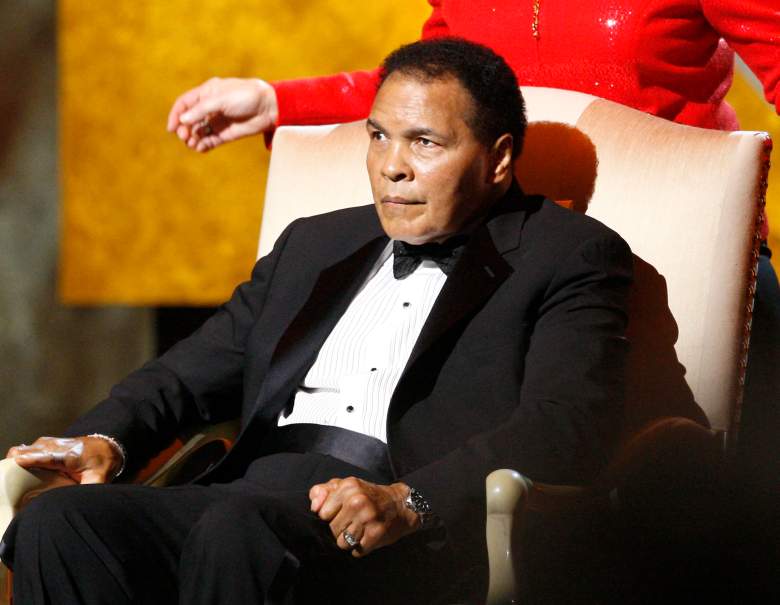
Why did Muhammad Ali die? (Getty)
Muhammad Ali has passed away, according to WLKY. He was 74. He leaves behind nine children and a large extended family. (Learn more about his family here.)
A family spokesman has revealed that the legendary boxer died from septic shock. Septic shock refers to a widespread infection that causes dangerously low blood pressure and organ failure. It can also make breathing more difficult and requires emergency treatment with oxygen, IV fluids, and antibiotics.
Ali had been hospitalized for serious breathing and respiratory issues and had been in an Arizona hospital for five days. He was fighting for his life and doctors talked about transporting him to a different part of the hospital after he first arrived, but it was decided that moving him was far too dangerous.
Ali was on life support, The Mirror reported, due to a breathing problem. His doctors said the problem was made worse by his Parkinson’s.
He was expected to recover, but then he gradually became worse and worse. After his wife and children arrived to say goodbye, he passed away.
Parkinson’s is a progressive disorder that develops gradually, at first just a slight tremor in one hand. But it progresses over time and can cause the face to show little expression, lack of swinging in the arms, slurred speech, and a shuffling gait. This is caused because certain neurons in the brain break down or die, according to Mayo Clinic. Patients lose neurons that produce dopamine. Although breathing issues aren’t among the chief symptoms listed by Mayo Clinic, the slow stiffening of muscles can contribute to breathing problems. According to CT Post’s interview with Dr. Michael S. Okun, muscle weakness from Parkinson’s can harm a person’s ability to cough and swallow. This can put patients at risk of developing aspiration pneumonia, which occurs when food or liquid ends up in the lungs instead of being swallowed properly. In addition, rigid core muscles may impede the inflation and deflation of the lungs. At this point, it’s not known exactly what kind of breathing problem Ali was having, but only that his Parkinson’s may have made it worse.
Celebrities, families, and friends took to social media to rally their support for the beloved Ali while he was in the hospital, fighting for his life. Tim Shanahan, a life long friend, said that Ali had always said he wanted to have more good deeds than bad when he passed. And the man succeeded in his goal.
Over the years, Ali has suffered from numerous health issues. In 2015, he was hospitalized for a severe urinary tract infection. It was originally diagnosed as pneumonia. In December 2014, he had a mild case of pneumonia that put him in the hospital for a couple days.
Ali has made fewer and fewer public appearances in the last few years as he suffered more deterioration from Parkinson’s. Doctors have said Ali likely developed Parkinson’s from being punches so many times during his long boxing career.
Gene Kilroy, Ali’s friend and manager, had called Ali a “prisoner in his own body” in November. But he also said that Ali had no fear and said he would stay here as long as God wanted him, and he had no regrets.

